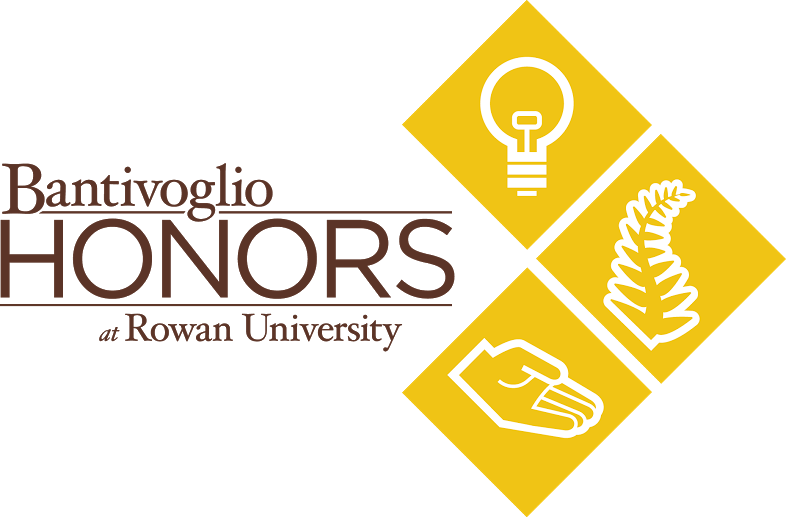Today, after two years of willful ignorance, I am finally quitting the Bantivoglio Honors program, which, as a whole, was built to accommodate and cultivate a small minority of Rowan’s student population.
While the tenets of the Bantivoglio Honors program may be “think, thrive, share,” the honors department as a whole struggles monumentally with the “sharing.” To graduate with honors, most students require approximately 8 “honors course experiences,” which could include formal classes, laboratory research with a faculty member, study-abroad or an internship where the student creates original work. This framework seems equitable enough on paper, until one realizes that the honors course offerings generally include intro-level STEM courses, those fulfilling gen-ed requirements and those fulfilling upper-level STEM requirements. Lab research is performed by faculty receiving research grants, which tend to be those in engineering or sciences.
The result is that most honors-sponsored courses and events are structured to exclusively service the portion of the population which attends the Henry M. Rowan College of Engineering or the College of Math and Sciences. If these courses don’t work for a student, then they’ll either have to ship themselves off to some foreign country, or they’ll have to work an additional internship that their science/engineering peers would never be cornered into. Most students just don’t have disposable semesters to take free electives in Italy, or disposable hours in the week to pick up an extra obligation in the form of an additional job. Engineers certainly aren’t expected to have either. But for non-engineers, the choice is often to accept that either their lives will be more difficult because the program wasn’t built for them, or that they’ll just be dropped from the program as a whole.
Uneven distribution of resources has been a known issue among both honors students and faculty for some time now. In fact, a “town hall” was called just this year by the dean to address this discrepancy. But virtue-signaling at inclusivity does not make an environment inclusive. For a program like honors, which denies eager applicants for often undisclosed and likely asinine reasons, the lack of inclusivity is a feature of the system, not a bug.
It would be easy to accuse honors of snobbish elitism, but academia as a whole has problems with inclusivity. Why else would we so highly value institutions with low acceptance rates, viewing such exclusion as a signal of a “good education”?
In leaving, I am finally prioritizing my own self-respect over the validation of being “elite” enough to join a group of smart people for the sake of being part of a group of smart people.
To be transparent, this decision comes following my rejection from a subsequent semester as an honors BLAST mentor: not based upon any lapse in performance in this role, but because I did not write an essay that other students (not even faculty) liked enough. This comes after a year of contributing my thoughts, opinions and perspectives to building and developing BLAST. To be even more transparent, I developed the framework and created the acronym for the second-semester programming (SPACE) entirely on my own.
Yes, honors rejected me while using the program I had created, because their entire criteria was based upon essay writing. Yes, it hurts my feelings. If I had been rejected for poor performance or to give other students a chance to serve as mentors, perhaps I would have understood. What I don’t understand is how honors could bar me from participating in the BLAST program I valued so much, for reasons so arbitrary. Perhaps there was reasoning behind this decision, but to me it just felt like another way for honors to screw me over, and to do so with complete apathy.
No other mentorship program at the university that I am aware of bases the acceptance of its mentors on their essay writing ability alone. There are many, many people who may be excellent teachers, but don’t always produce the best writing. Often, basing selection on writing alone selects for students who come from white, upper-class families with privilege. It’s outdated, but more to the point, it’s just wrong. It also encapsulates the harmful short-sightedness of the program as a whole.
In the honors BLAST program, I received lectures on the difference between tolerance and inclusion. They were good lectures. They described how “tolerance” means letting everyone exist near you without outright harming them, while “inclusion” is creating framework to allow everyone to participate free of systemic barriers. Honors has certainly been tolerant. It has never been even remotely inclusive. Maybe inclusivity was never the point.
After all, honors faculty didn’t blink when I said that I would likely not be able to graduate with the distinction because the program was not made for me, or that it is not equitable to demand that non-STEM students engage in time-intensive labor while their STEM peers put in a fraction of the effort for the same outcome, or that inclusivity means welcoming all perspectives rather than literally rejecting them. Instead, I was told straight-faced that honors values diversity.
It’s a bit sad how all of us who have been pushed past the breaking point, who have decided that honors just isn’t worth struggling to feel seen and heard, are all people whose voices would actually contribute to making the program more inclusive.
For comments/questions about this story, email [email protected] or tweet @TheWhitOnline.























































































































































!["Working with [Dr. Lynch] is always a learning experience for me. She is a treasure,” said Thomas. - Staff Writer / Kacie Scibilia](https://thewhitonline.com/wp-content/uploads/2025/04/choir-1-1200x694.jpg)














































Genna Laureen • Apr 12, 2019 at 9:41 am
Well said! I also had to quit the honors concentration after nearing four years of struggling to be in it as an education and liberal studies major. Thank you for writing this.